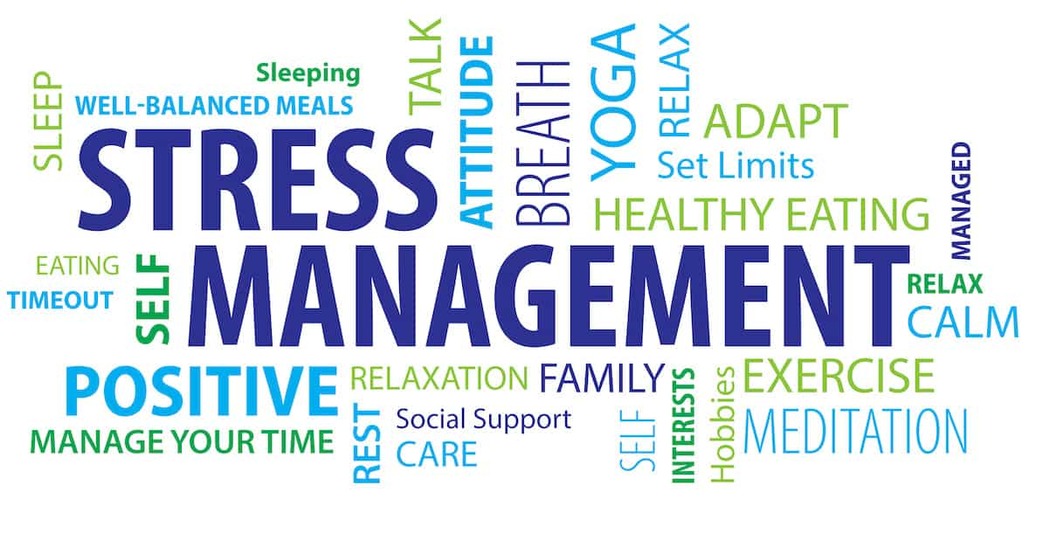Stress becomes a regular part of everyday life. When you juggle work, relationships, and daily tasks, you can quickly feel overwhelmed and mentally exhausted. While a small amount of stress can sometimes assist us in completing tasks, excessive stress can negatively impact our bodies and minds. The goal isn’t to eliminate stress completely but to learn how to manage it effectively. To truly reduce stress, you need more than just a few moments of relaxation. You need to develop habits that help you maintain emotional stability, mental clarity, and inner peace. In this article, we explore some scientifically proven stress-reduction techniques that can truly improve your mental health and help you live a more balanced and happier life.
Understand the True Source of Your Stress:
To effectively manage stress, you first need to understand its source. Many people unconsciously manage symptoms like fatigue or anxiety. Is your stress stemming from overwork, lack of sleep, conflict with others, or setting overly ambitious goals? Take some time to reflect and identify the root cause. Keeping a journal can help you identify stress trends and the things that make you feel awful. Once you understand the cause, you can take action instead of just addressing the superficial effects. The first and most important step to effective stress reduction is awareness.
Practice Mindful Breathing and Meditation:
Breathing and mindfulness exercises are two proven relaxation and stress-reducing techniques. When you focus on your breathing, you prevent anxious thoughts from spiraling out of control. Deep, purposeful breathing relaxes your mind, which in turn lowers your heart rate and cortisol levels. Regular meditation can help you stay focused, reduce anxiety, and better manage your emotions. You don’t have to practice for hours. Just five to ten minutes of focused breathing a day can make a big difference. Over time, mindfulness becomes a natural way to manage stress, making it easier to navigate life’s challenges.
Nourish Your Body and Improve Your Mental Health:
Your diet directly affects how you feel. A nutritious diet can help you relax and think more clearly. Foods rich in antioxidants, healthy fats, and complex carbohydrates help keep your mood and energy levels stable. Green leafy vegetables, nuts, berries, and fish, rich in omega-3 fatty acids, are beneficial for the brain and can reduce inflammation caused by stress. Staying hydrated is also crucial; dehydration can increase anxiety and fatigue. Additionally, reduce your intake of caffeine and refined sugars, which can make you tired and depressed. A healthy diet is one of the best ways to relieve stress in the long term, as it helps your body and mind function better.
Make Sleep and Restorative Breaks a Priority:
One of the best ways to manage stress is to get enough sleep. Lack of sleep makes it harder for the brain to process emotions and stay focused, leading to irritability and increased stress levels. Stick to a regular sleep schedule to get 7 to 8 hours of quality sleep every night. Create a restful sleep environment by reducing screen time, dimming the lights, and practicing relaxation techniques before bed. Take short breaks during the day to relax your mind and recharge. Even a few minutes away from the screen or getting some fresh air can reset your mind, keep you productive, and prevent burnout.
Engage in a Physical Activity You Enjoy:
Exercise is a natural way to relieve stress and improve your physical and mental health. Exercise releases endorphins (a feel-good molecule) and reduces cortisol, the stress hormone. You don’t have to exercise constantly to see results; consistency is more important than intensity. Choose activities you enjoy, such as walking, dancing, yoga, or cycling. Exercise can also help you sleep better, stay focused, and maintain emotional stability. When you feel healthy, your mind follows your body. Over time, regular exercise becomes more than just a way to stay active; it can become a mental habit that helps you manage stress and feel better overall.
Build Emotional Support and Healthy Connections:
People are social creatures, and strong relationships can help you reduce stress. Talking to a trusted friend, family member, or therapist can help you feel better and see things from a different perspective. Oxytocin is a hormone that helps people reduce stress and strengthen bonds with others. It’s released when people interact. Spend time building genuine connections with others, whether through conversations, doing things together, or simply being there. Spend time with people who make you feel good and understand you. Emotional support can help you cope with stress and remind you that you’re not alone in your struggles. One of the best ways to improve your mental health is by building healthy relationships.
Be Grateful and Kind to Yourself:
Being grateful and kind to yourself is one of the best ways to reduce stress that people don’t pay enough attention to. When you’re grateful, you stop dwelling on what’s wrong in your life and start focusing on what’s right. This leads to joy and happiness. Write down three things you’re grateful for every day. Your gratitude helps your brain see and appreciate the good. Being kind to yourself is just as important. Many people experience more stress when they strive for perfection or beat themselves up for small mistakes. Be kind to yourself and be patient. Remember: progress is a journey, not a race. When you combine self-compassion with gratitude, you create a mental buffer that helps you cope with daily stress.
Conclusion:
Managing stress isn’t a quick fix; it’s about living a balanced life to ensure physical and mental well-being. You can build a solid foundation for mental health by addressing the underlying causes of problems, staying mindful, eating healthily, getting enough sleep, exercising, and building strong connections with others. These steps will reduce stress and improve your health, well-being, and resilience. Improving your mental health requires perseverance and self-awareness, but every step you take toward calm and balance is a victory. If you start small and persevere, you’ll soon notice a dramatic change in how you handle life’s challenges.
FAQs:
1. What can I do to quickly calm down when I’m stressed?
Spend a few minutes doing slow, deep breathing. This lowers your heart rate and relieves stress almost immediately.
2. Does exercise really help reduce stress?
Yes, regular exercise releases endorphins, which naturally make you feel better and help your body cope better with stress.
3. Does your diet affect your stress levels?
Of course. A balanced, nutritious diet is beneficial for your brain and helps you maintain emotional stability, which in turn lowers your stress levels.
4. How many hours of sleep do I need to feel refreshed?
To fully rejuvenate your body and mind, aim for 7-8 hours of sleep per night.
5. What’s one daily habit that helps reduce stress?
Practicing gratitude every day can help you stay emotionally stable and focus your mind on positive things.



